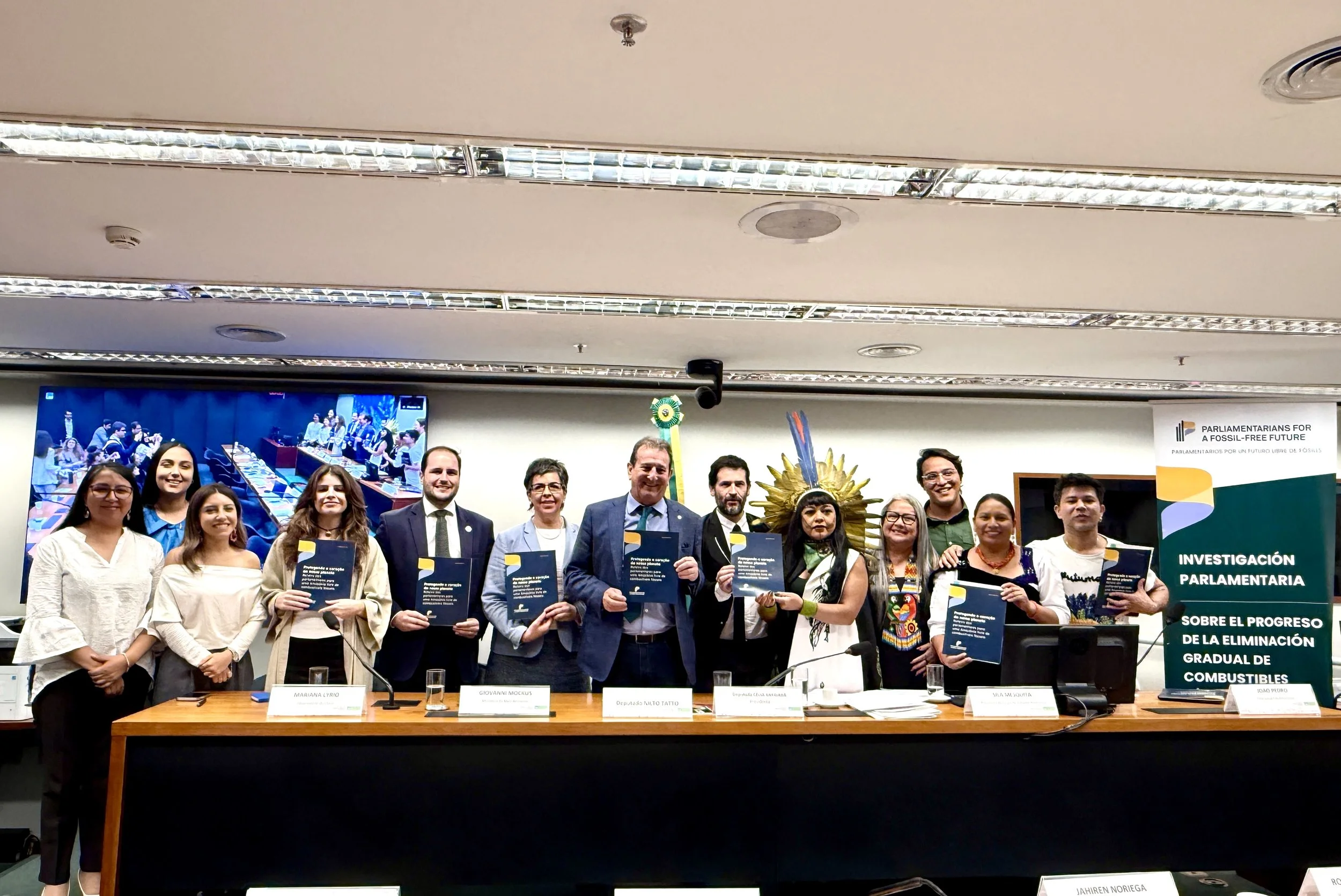From Inquiry to Action: A Parliamentary Roadmap for a Fossil-Free Amazon
Over the past year, an unprecedented parliamentary initiative has taken shape across the Amazon region. Lawmakers from seven countries —Brazil, Colombia, Ecuador, Peru, Bolivia, Venezuela, and Canada— came together to launch a global inquiry into the impacts of fossil fuel exploitation in the Amazon biome and the pathways toward a just and equitable energy transition.
A year of investigation and collaboration
The inquiry began in early 2024 with a clear objective: to confront the expansion of oil and gas extraction in the Amazon and to identify concrete, legislative solutions for a transition that protects both people and ecosystems. Through a series of public hearings held in Cali, Lima, and Bogotá, parliamentarians listened directly to Indigenous leaders, scientists, civil society organizations, and local communities affected by decades of extractive activity.
Their testimonies revealed what scientific data has long warned: the Amazon is nearing a tipping point and the degradation from hydrocarbon exploitation has contributed to it. Violations of human rights, oil spills, gas flaring, deforestation, and water contamination have created a humanitarian and ecological crisis. Yet these same voices also outlined the way forward, one grounded in renewable energy, bioeconomy, Indigenous knowledge, and international cooperation.
A historic outcome: legislation for a Fossil-Free Amazon
The culmination of this process came with the release of the report “Protecting Our Planet’s Heart: Parliamentarian’s Roadmap for a Fossil-Free Amazon,” presented on October 7, 2025, at Brazil’s National Congress. The document provides a blueprint for ending fossil fuel expansion in the region, offering viable alternatives that include strengthening local economies, expanding renewable energy access, and developing financial mechanisms to keep oil in the ground.
One of the most tangible results of this process has been the coordinated introduction of bills in Brazil, Colombia, Ecuador, Peru, and Bolivia, the first regional legislative action of its kind. These proposals aim to prohibit new oil and gas projects within the Amazon, signaling a growing political will to align national legislation with the goals of the Paris Agreement and the Kunming-Montreal Global Biodiversity Framework.
Looking ahead to COP30 in Belém
The report’s presentation, just weeks before COP30, holds deep symbolic and strategic significance. The upcoming climate conference, to be hosted in Belém do Pará, places the Amazon at the center of global negotiations on climate and biodiversity. For parliamentarians, this is a critical moment to transform words into commitments, and to ensure that the protection of the Amazon becomes a shared, binding responsibility among nations.
The message from the network is clear:
The Amazon cannot continue to be sacrificed to the fossil fuel industry.
Governments must adopt time-bound plans to phase out oil and gas in the region.
The transition must be just, inclusive, and grounded in Indigenous and Local Communities leadership.
Given the vital role of the Amazon globally, international cooperation has a key role to play.
As the world turns its eyes to Belém, this parliamentary effort stands as proof that cross-border collaboration is possible, and that legislative courage can light the way toward a fossil-free future for the Amazon and for the planet.
Read the Report in English, Portuguese and Spanish:
Parliamentarians For A Fossil-Free Future

